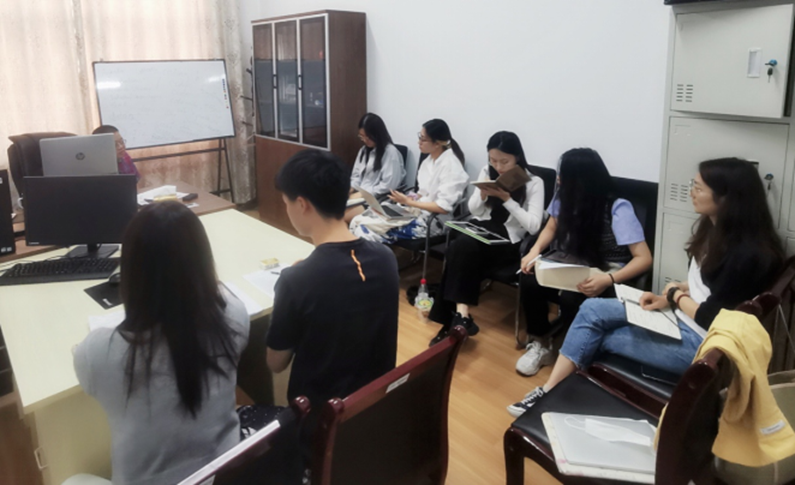At noon on September 22, the Evidence-based Research Center for Education Assessment (ERCEA) held an academic seminar in the Old Science and Technology Building at Jiangsu University. The seminar was chaired by Professor Huang Jinyan and attended by Dr. Li Zhang and seven graduate students from the Research Center.

The topic of this conference was “What is research.” First, Professor Huang Jinyan issued a self-administered questionnaire for postgraduate research literacy and asked everyone to self-assess their research literacy. Then, Professor Huang asked, “What is research?” for brainstorming. Based on the answers from participants, Professor Huang further emphasized the importance of scientific methods and problems. First, define the topic, narrow it further, and identify the research question. Next, scientific tools are used to collect data for qualitative or quantitative analysis. Finally, the research results and conclusions are drawn.
Participants had a heated discussion on the relationship between research topics and research questions, the relationship between research questions in quantitative and qualitative research, and the relationship between results and conclusions, and expressed their opinions. Professor Huang summarized that there are two relationships between qualitative and quantitative research. The first is complementary, and the second is mutual evidence. In the context of the study, it is imperative to establish a clear relationship between the two methodologies employed, as this will enhance the overall clarity and coherence of the piece. Simultaneously, it is imperative to consider the correlation between the outcome and the conclusion. The outcome serves as the substantiation for the conclusion, while the conclusion represents the expansion and elevation of the outcome. It is crucial to avoid conflating these two elements.
Ultimately, the graduate students presented the initial outline of their graduation papers, focusing on aspects such as research themes, research questions, research techniques, and so on. The other students respectfully expressed their ideas, while Professor Huang provided individualized assistance.